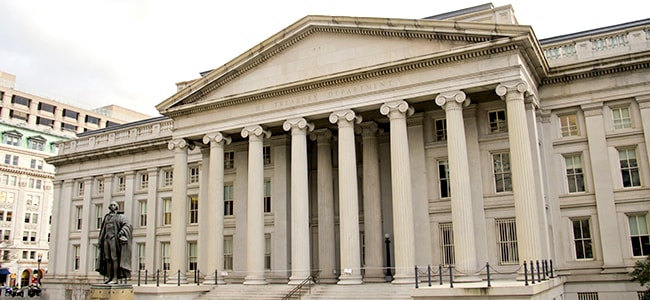Administrative Law Center

Although many people are familiar with the United States judicial court system, many laws and binding legal decisions come from administrative agencies. Administrative agencies can be basically defined as official government bodies that have the power and authority to direct, supervise, and implement certain legislative acts or statutes. Not all administrative agencies have the term “agency” in the title. Many are referred to as boards, departments, divisions, or commissions.
An agency over which the President has substantial direct control is usually called an executive agency, while agencies under less presidential control are usually known as independent agencies. A notable difference between an executive agency and an independent agency is that Congress typically prevents the President from removing a head of an independent agency without good cause. In contrast, the heads of executive agencies serve at the will of the President and can be removed whenever the President sees fit. Another difference is that an executive agency tends to have a single head, while an independent agency tends to be led by a board or commission of several members.
How Administrative Agencies Create Laws
In 1946, Congress adopted the Administrative Procedure Act (“APA”), which governs the process by which administrative agencies create and enact laws. The Act was implemented in order to ensure that the public has adequate notice of proposed laws, that there is an opportunity to comment on the proposed law, and that there are clear standards for agency rulemaking. The APA also specifies when courts may review and nullify administrative agency rules and provides standards for any administrative hearings that are conducted.
Federal agencies—both executive and independent—have to follow the rulemaking procedures outlined in the APA. First, the agency must publish a proposed rule in the Federal Register and give the public at least 45 days to review the rule and submit a public comment if they choose. Public comments can either oppose or support the proposed rule and can be submitted by virtually anyone, including individuals, companies, and interest groups. During this period, the agency has the option of conducting a public hearing on the proposed rule. If the agency does not hold a hearing, however, an interested party can submit a written request for a hearing at least 15 days before the close of the public review period. The agency reviews the comments and considers whether to make any changes to the proposed law. Depending on how drastic the change to the rule is, the agency may be required to allow the public 15 days to review and comment on the amended version. This cycle may happen a few times before the rule reaches its nearly final form. The APA requires agencies to summarize and respond to each public comment, and each comment is made available to the public as part of the rulemaking record.
The agency must send its proposed rule to the Office of Administrative Law (“OAL”), which oversees all rulemaking activities of federal agencies, within one year from the date the proposed rule was first released to the public. OAL reviews the law and the procedures the agency utilized to determine whether they complied with the APA. If the OAL determines that the agency followed the APA appropriately, the agency can complete the process and publish a final rule, which is then printed in the Federal Register and the official Code of Federal Regulations.
Challenging Administrative Decisions
Most administrative agencies have the power to enforce and adjudicate the laws that they create. Typically, enforcement proceedings resemble courtroom practices and procedures in which the parties must present evidence and argue their case. The decisions of administrative enforcement proceedings create a body of administrative law much like judicial court opinions.
According to the APA, a party wishing to challenge an agency’s determination can ultimately appeal the decision to a court within the judicial branch for review. To appeal the decision to a judicial court, however, the party seeking review must exhaust any administrative appeal procedures made available to that party by the agency and the APA. This process is designed to create sufficient checks and balances between the three branches of government.
Courts use different standards of review to evaluate administrative agency laws. The standard of review determines the amount of deference that the court gives to the administrative agency that created the rule. When reviewing an administrative decision, the court will consider whether the agency’s action was arbitrary and capricious, or an abuse of discretion.
State Administrative Law
States have created their own agencies, many of which mirror their federal counterparts. For example, most states have an agency that addresses workplace safety concerns, similar to the federal Occupational Safety and Health Administration. Like Congress, state legislatures delegate authority to agencies, which are tasked with making and enforcing rules that help implement statutes. Most states have enacted laws similar to the APA, which provide the procedures that agencies must use in activities such as rulemaking. These tend to be very specific and vary considerably by state. Local government entities like cities and counties, which are political subdivisions of the state, also may operate their own agencies.